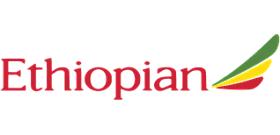 Ethiopian Airlines Expands Fleet with 11 New Boeing 737-8s to Bolster Regional and Int. Connectivity
Ethiopian Airlines Expands Fleet with 11 New Boeing 737-8s to Bolster Regional and Int. Connectivity
Ethiopian Airlines, Africa’s aviation giant, has taken a decisive step to reinforce both its regional and global reach by signing an agreement for 11 additional Boeing 737-8 aircraft at the Dubai Airshow. This strategic move is poised to further strengthen the carrier’s position as the continent’s leading airline and will significantly expand the capabilities of its Addis Ababa hub, a critical gateway linking Africa to the world.
As the operator of Africa’s largest Boeing fleet, Ethiopian Airlines maintains a commanding presence across the skies, with the continent’s largest backlog of 737 MAX, 777X, and 787 Dreamliner aircraft. This latest order builds on a long-standing partnership between the airline and Boeing, which has continued to evolve in tandem with the airline’s ambitious growth strategy and vision for the future.
Commenting on the new agreement, Mesfin Tasew, CEO of Ethiopian Airlines Group, expressed enthusiasm for the ongoing relationship with Boeing, highlighting the airline’s commitment to delivering excellence in both performance and passenger experience. “The order will support our growth plans that we have set as part of our vision and strategy,” he said. “We are happy that our partnership with Boeing continues to grow over the years and we look forward to flying Boeing airplanes for years to come and that we will continue to serve our customers by bringing them high performance airplanes with passenger comfort.”
The addition of these new aircraft aligns with Ethiopian Airlines’ stated objective to rapidly scale its operation, both regionally and internationally. The 737-8, known for its efficiency and flexibility, offers significant advantages in terms of fuel consumption, range, and environmental responsibility. These qualities are increasingly important as African airlines adapt to rising demand, fluctuating fuel costs, and the imperative for sustainable practices.
For African aviation professionals, Ethiopian Airlines’ expansion signals several key trends and opportunities. Firstly, it reinforces the importance of fleet modernization as a pathway to remaining competitive in a fast-evolving market. The airline’s proactive approach to capacity and network development sets a benchmark for others in the region, especially against the backdrop of increasing intra-African and international travel demand.
Secondly, the expansion of the Addis Ababa hub is likely to yield broader benefits for the region’s connectivity. As the main base for Ethiopian Airlines, the airport serves as a linchpin for transit passengers, facilitating smoother connections between Africa, Europe, Asia, and the Americas. The arrival of additional 737-8s will allow the airline to introduce new routes and increase frequencies on existing ones, thus enhancing the continent’s accessibility and economic integration.
This deal also underscores the significance of strong, enduring partnerships between African carriers and global manufacturers. Boeing’s senior vice president of Commercial Sales and Marketing, Brad McMullen, underscored the value of this collaboration, noting, “Ethiopian Airlines’ commitment to expand its 737 MAX fleet underscores its leadership in Africa. Our new agreement also strengthens our nearly 80-year partnership with the airline and region. We are proud that our efficient and versatile airplanes will continue to play a pivotal role in Ethiopian Airlines’ growth as they further connect the African continent and the world.”
The broader implications for Africa’s travel trade are substantial. With a modern fleet, airlines such as Ethiopian can offer more reliable schedules, improved in-flight services, and enhanced safety standards—factors that are increasingly vital as African travelers become more discerning and international competition intensifies. The ability to deploy next-generation aircraft on both short- and medium-haul routes will also stimulate tourism, business travel, and cargo movements, benefitting a wide range of stakeholders across the supply chain.
For those driving Africa’s travel and tourism sector, the Ethiopian Airlines–Boeing agreement offers a compelling case study in forward-looking investment and strategic planning. As fleet expansion paves the way for new business models and market opportunities, industry professionals are encouraged to consider how evolving technology, infrastructure, and partnerships can reshape the competitive landscape in the years ahead.
Ultimately, the addition of 11 new Boeing 737-8s positions Ethiopian Airlines to continue its role as a catalyst for African aviation development. The move not only enhances the airline’s ability to serve existing and emerging markets but also signals confidence in the continent’s long-term growth potential. As more African carriers look to upgrade their fleets and expand their networks, the lessons from Ethiopian’s sustained success will likely inspire fresh innovation and collaboration throughout the region’s aviation ecosystem.
